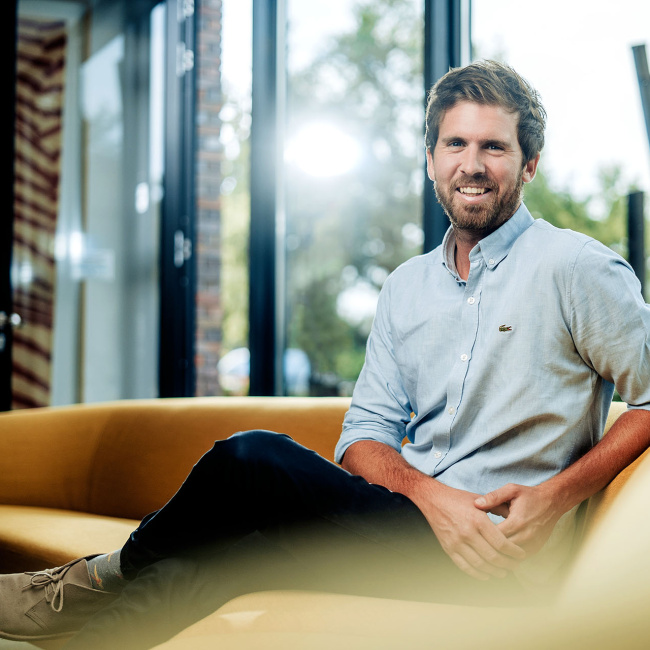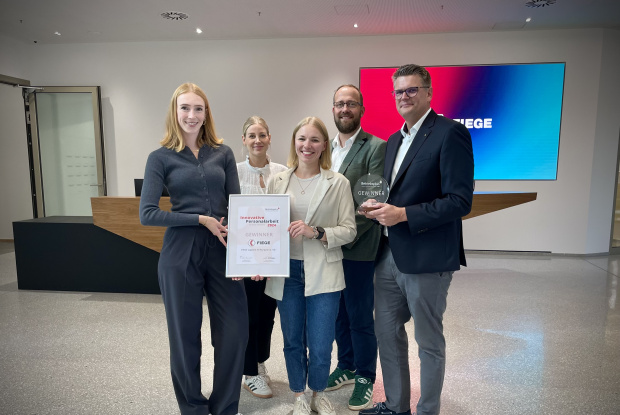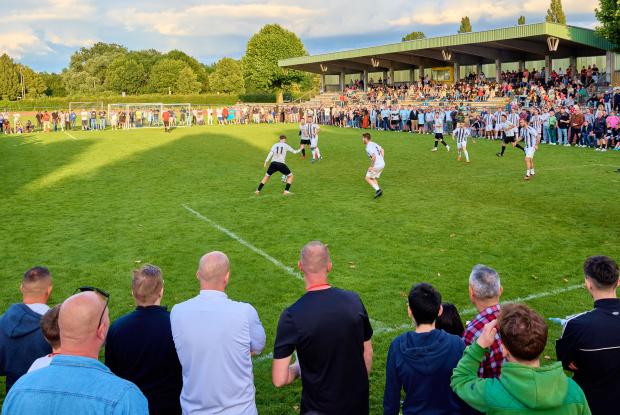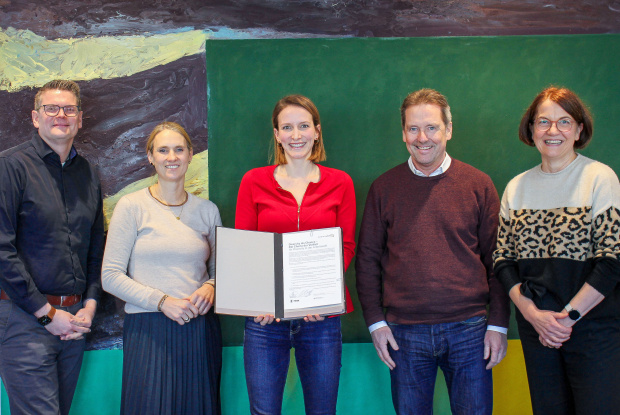Opportunities at FIEGE
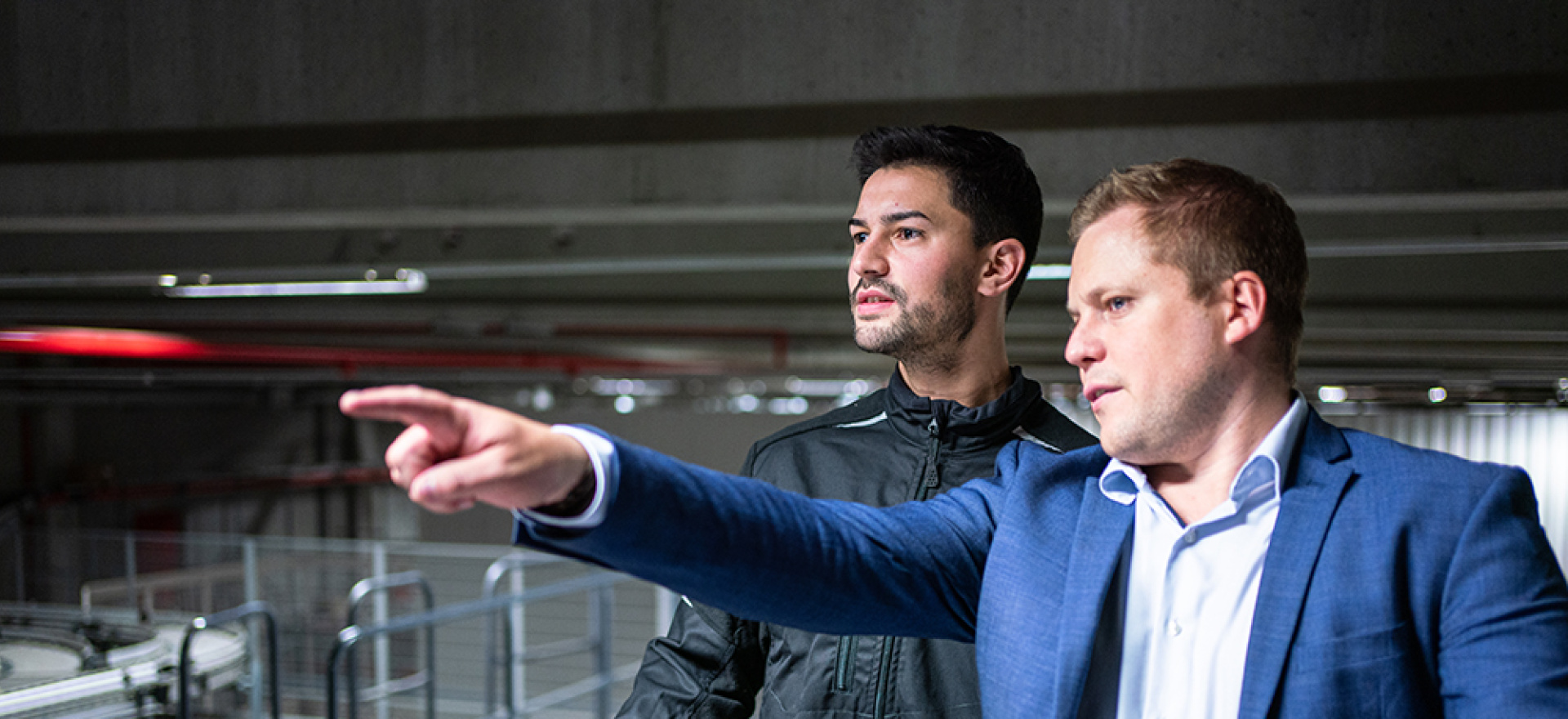
Continued professional development (CPD) is key to good HR policy. Next to in-company training offers, FIEGE also relies on the specific development of skills outside of the company.
All good things are worth the wait. This also applies to employers. “To remain successful, we not only need to source and recruit the best possible human resources, but also tie them to our company for the long term”, says Claudia Scheins, Head of Learning & Development at FIEGE. Good professional training and development opportunities are what might tip the scales for many a candidate, as the Human Resources specialist tells us: “This is the very reason why as an employer, we don’t stop evolving in order to stay ahead of the competition.”
Alternative development path
Next to the broad offer of in-house training seminars, FIEGE also relies on the development of professional skills away from the company. “Our efforts go beyond merely teaching competencies. We aim to give our employees the possibility to advance their professional career by acquiring certificates or professional qualifications”, Scheins explains.
The FIEGE branches in Unna and Halle (Saale), for example, use the ValiKom Transfer HR development tool for this. A standardised validation procedure helps to establish skills that have been acquired outside of a formal training system. They are then referenced with vocational training programmes that are recognised in Germany and evaluated accordingly. A graduating certificate issued by the German Chamber of Industry and Commerce (IHK) then attests to the full or partial equivalence of these skills with those professions. Paul König, Team Leader HR in Halle, adds: “This signals our immense appreciation of our colleagues as it officially documents the skills that they have acquired over years during their day-to-day work.”
Step by step career planning
FIEGE Dieburg in Hesse also works with the IHK for its external qualification programme. Every year, several employees are given the opportunity to be trained as a specialist for warehouse logistics. One great example on how well this can work is Adrian Duda: “I started five years ago, initially as a temporary worker in returns. After six months, I applied for a full-time position with FIEGE and was taken on”, says the 41-year-old family father.
After two years, he moved to inventory management. However, he still had no formal professional qualifications: “Of course, I was immediately interested as soon as I found out about the training programme for warehouse logistics specialists.” He completed the two-year training last summer with an outstanding distinction as the best in class that year. “Going back to school on two days of the week initially took some getting used to. And the exams were not easy. But I knew why I was doing this and that motivated me”, Duda adds.
And it proved worthwhile. In the meantime, he has taken the next step in his professional career at FIEGE. “I have applied in-house for the position of operational and technical coach. I currently hold that position temporarily and can decide in July whether I wish to accept it as a long-term commitment”, Duda explains. He is happy to be able to support new colleagues and share everything he has learned with them.
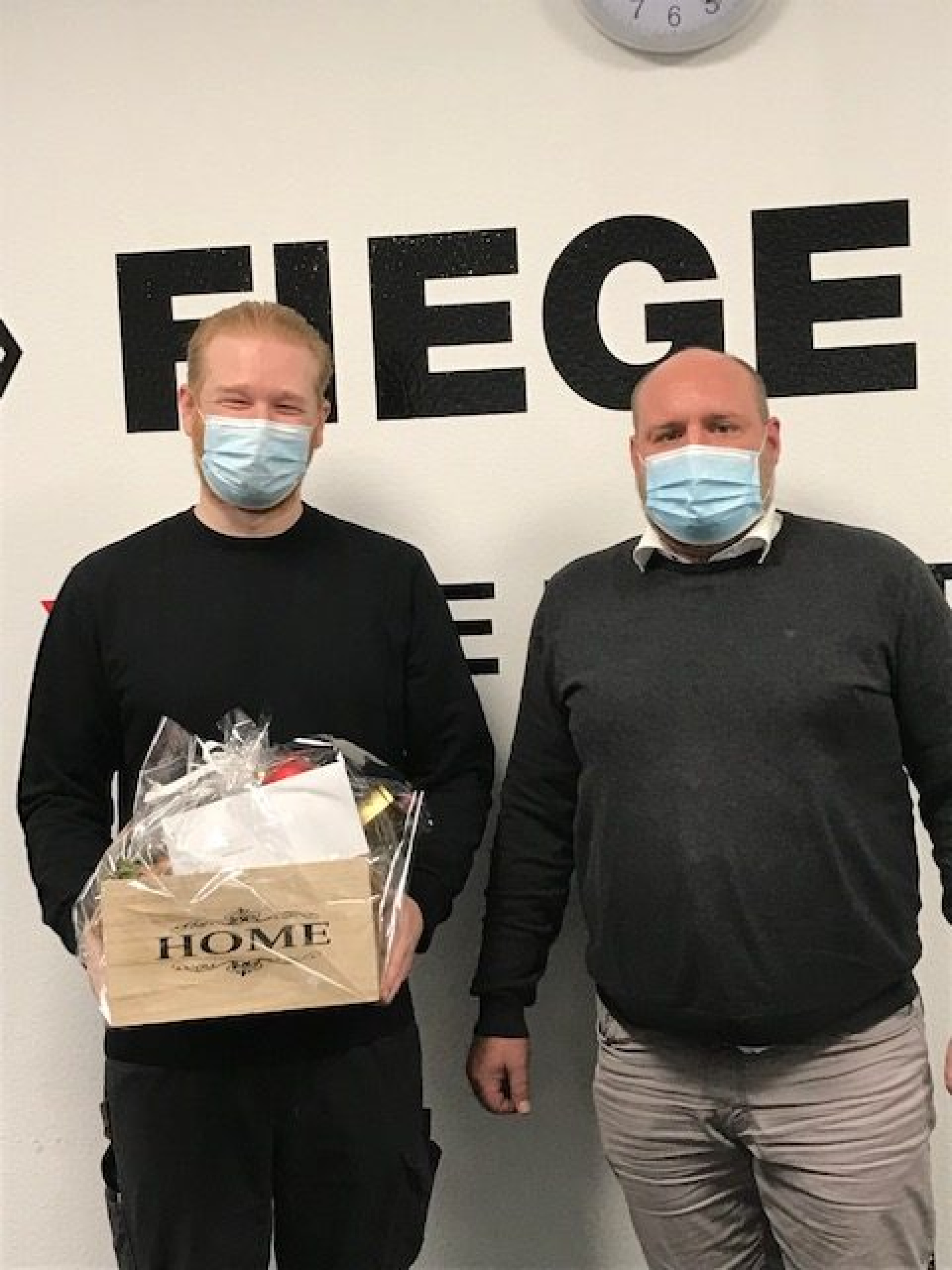
Daniel van der Linde (r.), plant manager at FIEGE in Dieburg, congratulates Adrian Duda (l.) on his award as best participant of the year. (photo: FIEGE)
Greater participation
Next to advancing the professional development of employees at FIEGE, the inclusion of people with disabilities is also seen as highly important. The central point of contact for this is Natalia Königs as the Group’s Representative Body for Severely Disabled Employees at FIEGE. Her team, which also includes the representative bodies at the various locations, formed at Group-level in 2019. The superordinate goal is to increase awareness about this issue, fight its stigma and overcome obstacles. After all, many people depend on a position that accommodates their respective abilities and medical requirements. “This may refer to anything from a stroke to an affliction such as diabetes and epilepsy”, says Königs
Königs’ responsibilities include offering information on legal rights and obligations, giving advice on how to apply them in practice and contacting integration and inclusion offices. The team is also available for one-on-one in-house consultations. It aims to embrace this function with greater visibility to the outside in the future, Königs says. To achieve this, an external intersection for placement offers by Germany’s official Employment Agency is planned. “Many people uphold the prejudice that logistical activities are not suitable for people with disabilities. This, however, is not true. All it takes is the right setting – also because most people concerned are highly motivated.”
Plans go even further
Claudia Scheins is thrilled to witness the many different initiatives within the company: “Our locations are all very different because of their respective area of responsibilities and the structure of their customers. Our approach is therefore to be as centralised as is necessary, but also as decentralised as is possible.” Scheins and her team are currently working on merging all in-house and non-company CPD offers under the umbrella of the FIEGE Academy. Beyond this, the future goal is to collaborate with universities and vocational colleges as well as educational institutions, she tells us. For these and other HR issues, all national and international HR heads will be coming together at an HR Summer Camp in June. “We want to engage in an exchange, learn from one another and actively shape future topics. After all, one thing is certain: There is still room for improvement – and that is precisely our mission.”
